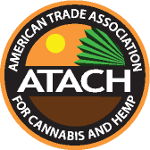Tennessee’s approach to synthetic THC, including Delta-8 THC, allows these products within a legal framework. Under Tennessee law, intoxicating hemp-derived cannabinoids are permitted as long as they contain less than 0.3% Delta-9 THC by dry weight. The Tennessee Industrial Hemp Act governs these products, and while they are accessible in the market, Tennessee lacks state-level restrictions specific to synthetic cannabinoids beyond general consumer protections.
1. State Classification on Hemp Intoxicants
Tennessee operates within a regulatory framework where hemp intoxicants are legally accessible if they adhere to federal THC limits. This includes synthetic THC, such as Delta-8 and Delta-10, if it remains within federal THC content limits. No specific state-level restrictions govern the sale or distribution of these products, which can be sold in various retail environments without distinct state licensing requirements.
2. THC Potency Limits
Tennessee does not enforce separate potency limits for synthetic cannabinoids like Delta-8 such as mg per serving. This absence of concentration controls allows for variable product potency in the Tennessee market.
3. Public Health Measures
Tennessee has limited public health measures for synthetic cannabinoids. There are no mandated age restrictions, child-resistant packaging, or other protections specifically targeting synthetic THC.
4. Enforcement Mechanisms Against Unregulated Sales
Due to the lack of specific state regulations for synthetic THC, enforcement is limited. General consumer protection laws apply, but Tennessee does not actively monitor or restrict Delta-8 sales beyond adherence to federal Delta-9 THC limits. State agencies primarily handle oversight for compliance with federal regulations.
5. Advertising and Marketing Restrictions
No specific advertising restrictions exist for synthetic THC in Tennessee, allowing marketing approaches that could potentially appeal to minors or present unverified product claims. General advertising laws apply, but they do not specifically limit synthetic cannabinoid marketing.
6. Responsible State Agency
The Tennessee Department of Agriculture oversees hemp cultivation and processing but does not regulate synthetic cannabinoids like Delta-8 THC. The lack of specific state oversight on synthetic THC means compliance falls to general consumer protection and agricultural standards.
